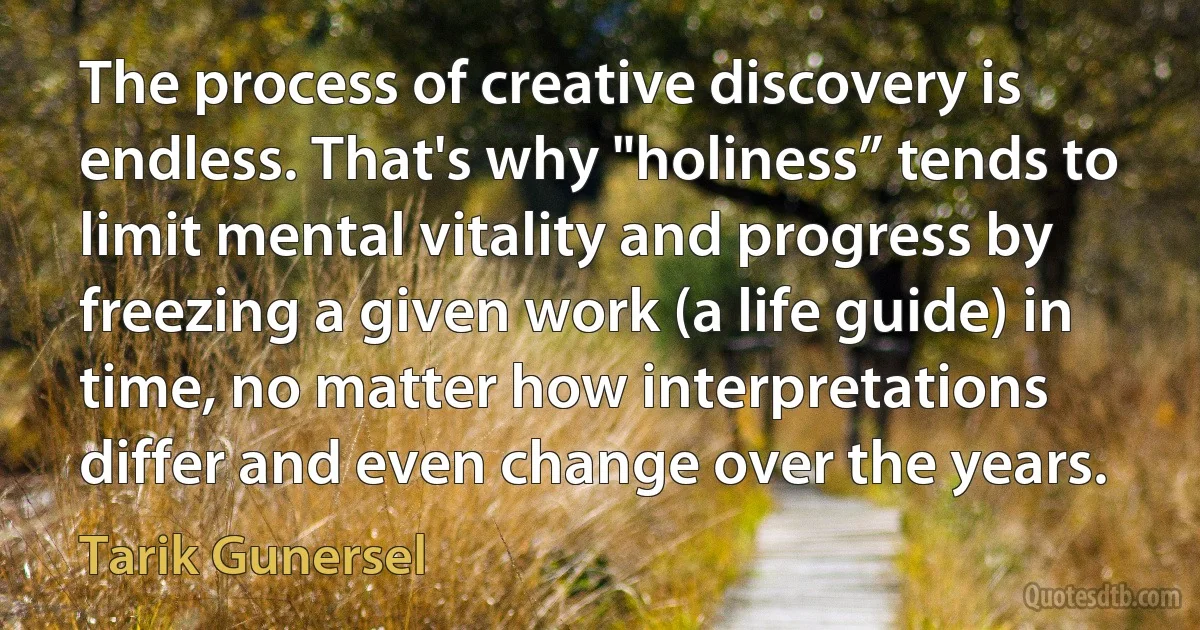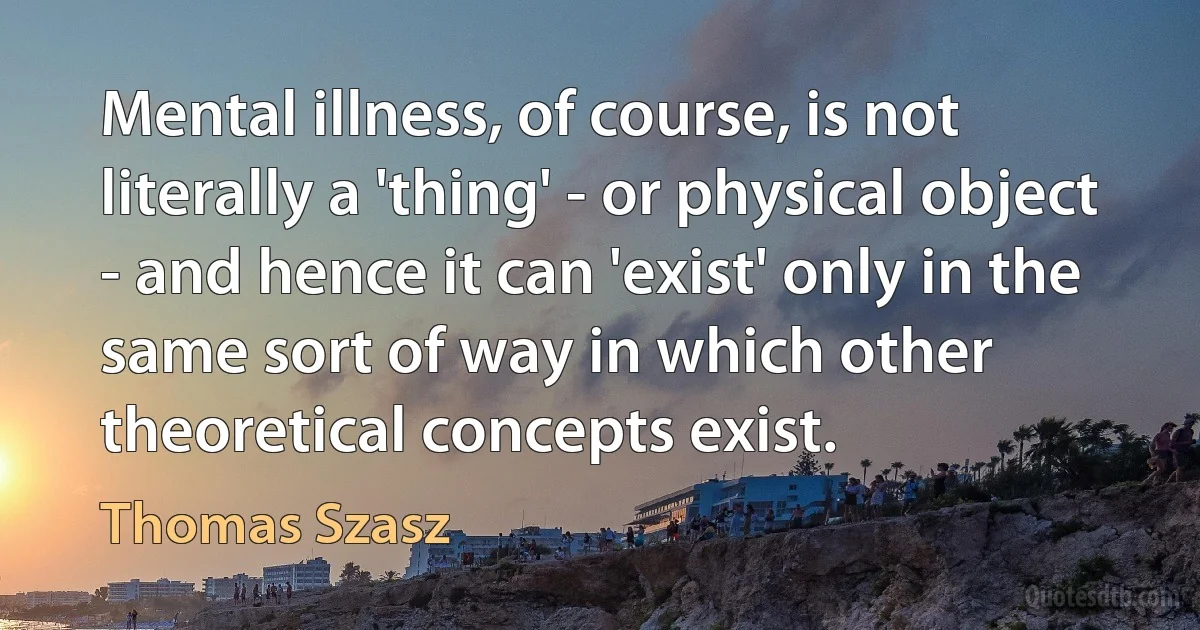Mental Quotes - page 62
Conversation injures more than it benefits. Men talk to escape from themselves, from sheer dread of silence. Reflection makes them uncomfortable, and they find distraction in a noise of words. They seek not the company of those who might enlighten and improve them, but that of whoever can divert and amuse them. Thus the intercourse which ought to be a chief means of education, is for the most part, the occasion of mental and moral enfeeblement.

John Lancaster Spalding
O brave youth, how good for thee it were couldst thou be made to understand how infinitely precious are thy school years-years when thou hast leisure to grow, when new worlds break in upon thee, and thou fashionest thy being in the light of the ideals of truth and goodness and beauty! If now thou dost not fit thyself to become free and whole, thou shalt, when the doors of this fair mother-house of the mind, close behind thee, be driven into ways that lead to bondage, be compelled to do that which cripples and dwarfs; for the work whereby men gain a livelihood involves mental and moral mutilation, unless it be done in the spirit of religion and culture. Ah! well for thee, canst thou learn while yet there is time that it will profit thee nothing to become the possessor of millions, if the price thou payest is thy manhood.

John Lancaster Spalding
Before you begin a thing, remind yourself that difficulties and delays quite impossible to foresee are ahead. If you could see them clearly, naturally you could do a great deal to get rid of them but you can't. You can only see one thing clearly and that is your goal. Form a mental vision of that and cling to it through thick and thin.

Kathleen Norris
It is so very important to remember that, while all healing is of God, we must find the answer to the question, "Which is the most relevant way of cooperating with God in the case of this particular patient? It may be surgery, or medicine, or psychiatry, or prayer. Prayer is not relevant in many cases, save as an aid to the patient's mental condition, and God is not going to make of prayer an easy magic, just because we have not used our human resources of money and men in wiser ways.”.

Leslie Weatherhead
We must go on praying, for sometimes prayer seems so to alter mental attitudes and reinforce mental energies as to strengthen the patient's resistance to disease and even overcome it, and in any case to sustain him in the bearing of it. But we must not lose faith when God does not answer prayer in the way we think we should if we had his power.

Leslie Weatherhead
Men glibly turn to an infallible Bible, or an infallible church, or an infallible Pope, or an infallible conscience, or an infallible Christ, and say that that authority is sufficient for them and enables them to accept truth. I believe all that kind of talk is false. It is false psychology or a failure of insight, and it is the fruit of mental laziness; a refusal to think things through. The most important convictions in religion cannot really be reached on the word of another. We can assent to propositions out of laziness of thought, or a desire to please, or an inability to argue, but one of the reasons why, in a crisis, men often feel let down by their religion is that they glibly assented to this or that, and falsely called their assent ‘belief.'

Leslie Weatherhead
I made a list of things that I might consider sin if the concept of sin were valid:
Number 1: Credulity, gullibility. I'd say that's a sin.
Voluntary willful ignorance. I'd say that's a sin.
Letting fear prevent you from understanding reality. I'd call that a sin.
Limiting the rights and freedoms of others in order to make them abide by your standards. That's a sin.
Sacrificing the mental, emotional and physical well-being of a child in deference to your religion. That's a sin.
Wasting the one and only life that you know you're going to have, worrying about and working for an afterlife that somebody told you might be there. That's a sin.

Matt Dillahunty
While we maintain the unity of the human species, we at the same time repel the depressing assumption of superior and inferior races of men. There are nations more susceptible of cultivation, more highly civilized, more enobled by mental cultivation than others, but none in themselves nobler than others.

Alexander von Humboldt
A treatise on mental dietetics would be imperfect without some special notice of that most irrational and melancholy of all human torments, hypochondriasis. Reason, morality, wit, and even religion, have endeavoured by every possible means to exorcise this demon. By pamphlets and by books-in tragedy and in comedy - from the pulpit and on the stage, it has been denounced and ridiculed.

Ernst, Baron von Feuchtersleben
Had Mephistopheles conferred no other service on Faust than easing him for a while of his cloak of learning, the doctor would have had little cause for despair. But the act of awaking is regulated by different principles from those which govern the act of going to sleep. In the former case, the hand of force is often necessary. Life points out with an iron staff the path which each individual should follow. Happy is the man who sees this staff, and follows the path; instead of tarrying by the way until weary, and, incapable of further exertion, he sinks bleeding to the ground. A high degree of mental culture, or a delicate tact, possessed by few, are required to distinguish the necessity of earnestness, or even of pain, in the midst of enjoyment.

Ernst, Baron von Feuchtersleben
It is impossible to understand the graveness of the Western crisis unless we realize that the cultivation of values beyond Littré's formula of civilization as the dominion of man over nature and himself by means of science is considered by broad sectors of Western society to be a kind of mental deficiency.

Eric Voegelin
... a basic law the more you practice the art of thankfulness, the more you have to be thankful for. This, of course, is a fact. Thankfulness does tend to reproduce in kind. The attitude of gratitude revitalizes the entire mental process by activating all other attitudes, thus stimulating creativity.

Norman Vincent Peale
In mathematics we can take our inner distance from the content of our statements. In the final analysis mathematics is a mental game that we can play or not play as we choose. Religion, on the other hand, deals with ourselves, with our life and death; its promises are meant to govern our actions and thus, at least indirectly, our very existence. We cannot just look at them impassively from the outside. Moreover, our attitude to religious questions cannot be separated from our attitude to society.

Niels Bohr
In my philosophy, science is an unrelenting battle against ad hoc explanation. No other field in psychology with which I have been acquainted has been so infested by ad hoc theories as the attempts to explain social class, racial, and ethnic group differences on various tests of mental ability.

Arthur Jensen
How such an elaborate theory could have become so widely accepted – on the basis of no systematic evidence or critical experiments, and in the face of chronic failures of therapeutic intervention in all of the major classes of mental illness... – is something that sociologists of science and popular culture have yet to fully explain.

Paul Churchland



